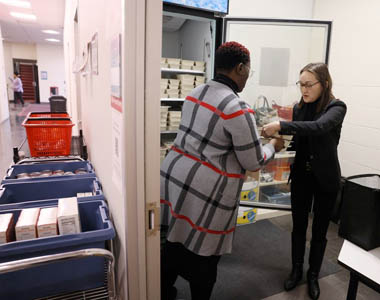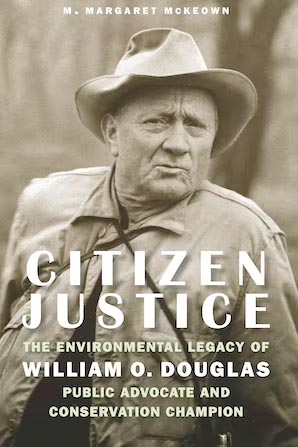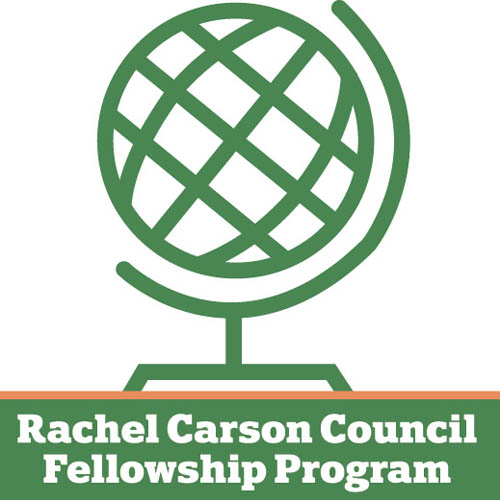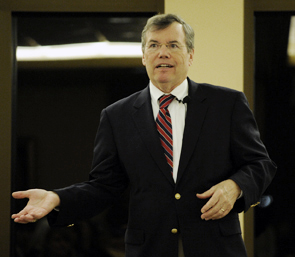 | | | Your January issue of RCC’s Campus Dispatch arrives as colleges and universities nationwide began 2023 and the winter semester facing increasing economic uncertainty, campus closings, and a newly elected House of Representatives deeply opposed to serious climate action and environmental justice. There was some good news as California Governor Gavin Newsome allotted $185 million to the UC system for climate action and research.  But hunger and food insecurity deepened on American campuses. In response, UC students “liberated” two college cafeterias making healthy food available to all – including poor and unhoused local citizens. And despite Governor Newsome’s climate concerns, this action came amidst the largest academic strike in American history as 48,000 people at the University of California refused to work for nearly six weeks before settling for much better compensation, benefits and working conditions. But hunger and food insecurity deepened on American campuses. In response, UC students “liberated” two college cafeterias making healthy food available to all – including poor and unhoused local citizens. And despite Governor Newsome’s climate concerns, this action came amidst the largest academic strike in American history as 48,000 people at the University of California refused to work for nearly six weeks before settling for much better compensation, benefits and working conditions.
Such support for challenging inequity, racism, climate change, and other “woke” issues is at the heart of Florida Governor Ron DeSantis’ attacks on higher education, including at two members of the RCC Campus Network, the New College of Florida, and the University of Central Florida, which we cover in a special section in this issue. As Professor Peter Jacques of the University of Central Florida, a former head of the Association of Environmental Studies and Sciences (AESS), told us, resistance to DeSantis’ “outrageous” anti-woke campaign is growing among students and faculty. Jacques’ course on environmental politics devotes about a quarter of its time to environmental justice and racism. He will continue to teach the truth, Jacques says, “No matter what DeSantis does “ In our “Speak Out” section, you can check out more student action and engagement in photo essays by RCC fellows Lily Riesett of St. Mary’s of Maryland, Cate Arnold of UNC – Wilmington, and Jamie Huerta of NC State, about the forgotten role of women in the history of U.S. food and agriculture, along with two mapping projects to uncover income inequality, racism, and gentrification in response to sea-level rise and flooding in North Carolina. More RCC Fellows will be on the way in academic year 2023-24, as we have just opened applications for the next cohort (about 30 Fellowships will be awarded). You can find the application form and information below. Those selected will receive a $2,000 stipend, year-long mentoring, and attendance at the RCC American Environmental Leadership Institute to be held July 23-27, 2023 at the Rockwood Manor Retreat Center adjacent to the C&O Canal Historic National Park.  As you will see from Bob Musil’s latest review essay about Rachel Carson and environmental and wilderness champion Justice William O. Douglas in Citizen Douglas, the C&O Canal is, in effect, the home of the modern environmental. It was saved from highway development after a protest hike by Justice William O. Douglas and was a favorite birding spot and source of inspiration for Rachel Carson. Douglas so admired Carson and the pre-publication sections of Silent Spring he saw in the New Yorker that he sought her out at one of her speeches and then raved about her book publicly, helping it reach best-seller status. As you will see from Bob Musil’s latest review essay about Rachel Carson and environmental and wilderness champion Justice William O. Douglas in Citizen Douglas, the C&O Canal is, in effect, the home of the modern environmental. It was saved from highway development after a protest hike by Justice William O. Douglas and was a favorite birding spot and source of inspiration for Rachel Carson. Douglas so admired Carson and the pre-publication sections of Silent Spring he saw in the New Yorker that he sought her out at one of her speeches and then raved about her book publicly, helping it reach best-seller status.
Given the recent rapid growth of the RCC, we are now hiring for two full-time positions (with a third on the way soon…) for the RCC Campus Network (RCCN). One is for the Director of the RCCN (or assistant or associate director depending upon experience and qualifications); the other is for the Assistant Director of the RCC Fellowship Program.
These openings have come about as our long-time Associate Director of both the RCCN and the RCC Fellowship Program, Mackay Pierce will, on March 1, become RCC’s first Senior Fellow. Pierce, who grew up not far from the Appalachian Trail, will be reporting and writing for the RCC as he hikes its 2,000 mile length from Georgia to Maine. He has been the editor of Campus Dispatch for four outstanding years and also founded the RCC Fellowship Program from scratch, building it into a large, nationally-recognized program that now requires its own staff. And so, we will be looking, as they say in Hollywood, for a Mackay Pierce - type. Actually, two of them. As you read our January issue, please take a close look at our campus network job openings and recommend somebody fantastic. Or apply yourself. Same, too, for the RCC Fellowship. We want to find, support, and mentor the next generation of national environmental leaders. Now is the time to apply. | | | | | | | | Study: Biology Textbooks Aren’t Keeping Up With Climate Science Climate change is a major threat to life on Earth — but not a major focus of biology textbooks. With every year that greenhouse gas emissions continue to rise, the climate crisis deepens — as does the threat it poses to life on Earth. But that increasing urgency isn’t reflected in many of the U.S.’s undergraduate biology textbooks. | | | | | | University of California Announces Groundbreaking $80 Million Grant Program to Spur Climate Action Projects As part of a historic partnership between the University and the state of California to combat climate change, UC will award $80 million in research grants across the state. The funding is part of a landmark alliance with the state to bring cross-disciplinary, multi-sector expertise to bear on the climate crisis. The University is grateful to the state Legislature and Gov. Newsom for providing a total of $185 million to support UC’s trailblazing research on climate change. | | | | | | | | Dinner or Tuition? Food Insecurity Deepens on College Campuses. More students struggling amid soaring housing costs and inflation. A growing number of Massachusetts college students are struggling to feed themselves and their families as soaring housing costs and inflation drain resources and pandemic emergency programs wind down, hunger advocates and students say. Private colleges and universities, in particular, are facing calls to increase access to food for students who are juggling living, education, and food costs. | | | | | | Op-ed: Amid Academic Strikes, UC Students Liberated Their Cafeterias Across California, university students are taking over dining halls in solidarity with graduate students on strike. It’s also a response to food insecurity and economic injustices on campus. Last week, for the second time in a month, an autonomous group of students at two University of California campuses released statements saying they had “liberated the dining commons” in a non-violent effort to provide free meals. | | | | | | | | West Baltimore Residents, Students Have Mixed Feelings About Water Quality After E. Coli Contamination BALTIMORE—Lily Goldsmith was in her kitchen making soup when she picked up her phone and learned from Twitter that the tap water in her West Baltimore neighborhood was contaminated with E. coli, and residents were being advised not to drink it. A West Baltimore native who always took pride in the quality of the city’s water, Goldsmith was dismayed to have to boil water and rely on cases of bottled water just to get by. | | | | | | Bard College Receives $399,000 from Mellon Foundation for Research Project on Voting Rights Bard College has received a $399,000 from the Mellon Foundation to support a three-year research project on voting rights. Bard will work together with North Carolina Agricultural and Technical State University (NC A&T), Tuskegee University, Prairie View A&M University (PVAMU), and The Andrew Goodman Foundation for this project. | | | | | | President Speaks: How Colleges Can Help Turn Out the Student Vote The president of Muhlenberg College shares strategies the institution used in Pennsylvania to sharply boost voting. Although midterm turnout data is still being crunched, it seems likely that young voters, many of whom cast their ballot for the first time, had an outsized impact on the results. Americans aged 18-29 voted at the second-highest rate in three decades, only slightly lower than the 2018 midterm elections, according to the Center for Information and Research on Civic Learning and Engagement at Tufts University. | | | | | | | | Women as Farmers? Caricatures of a farmer usually conjure up images of a white, strong, rural man. While almost 60% of farm owners in Maryland are male, and about 70% are white, these statistics paint an incomplete image of what a farmer in rural Maryland actually looks like. Unfortunately, we lack the idea of female, non-white, farmers partly because these groups did not have the resources to pass down their stories. | | | | | | Get the Picture? Climate Change Inequality in GIS Geographic information systems (GIS) are used for viewing, analyzing, and displaying geographical data in visual form. GIS uses data that is attached to a particular location and has the advantage of improving decision making since details are mapped out and easier to understand. Other advantages include reduced project costs and increased efficiency, improved communication between involved organizations, and easy recordkeeping where the maps can also be edited. | | | | | | Looking at Gentrification:
Should Stories Count? When first studying the scientific method, we learn about conducting an experiment to help support or eliminate a hypothesis. The experiment itself is said to provide supporting evidence that helps scientists, policymakers, entrepreneurs, and others make decisions. However, what qualifies as evidence can be arbitrary. | | | | | | | | After Condemning ‘Trendy Ideology’ in Higher Ed, Florida’s Governor Targets a Small College Republican Gov. Ron DeSantis wants to reshape New College of Florida into a “classics” college and a “Hillsdale of the South” that rejects “trendy” political views — sparking opposition from some students and alumni who worry that the public liberal-arts institution will no longer be welcoming to a diverse student body. DeSantis announced on Friday the appointments of six new members to New College’s Board of Trustees, including conservative activist Christopher Rufo. | | | | | | Muzzled by DeSantis, Critical Race Theory Professors Cancel Courses or Modify Their Teaching As fewer faculty members are protected by tenure, they’re finding it harder to resist laws that ban certain racial topics. Their students suffer the consequences. Jonathan Cox faced an agonizing decision. He was scheduled to teach two classes this past fall at the University of Central Florida that would explore colorblind racism, the concept that ostensibly race-neutral practices can have a discriminatory impact. | | | | | | A Florida College Goes to War With Ron DeSantis As the governor plots to topple Sarasota’s New College, the students of the historic liberal arts institution prepare to rise in its defense. What’s past is prologue. From 1956 to 1965, the state of Florida underwent a government-led campaign to root out LGBTQ people, civil rights activists, and supposed Communists from state institutions. Halfway through this McCarthyite witch hunt, which purged hundreds of students and teachers from the state’s universities, the chairman of a recently founded college in Sarasota spoke to Time magazine about his school. | | | | | | | | | | Before Rachel Carson Margaret, McKeown, Citizen Justice: The Environmental Legacy of William O. Douglas, Public Advocate and Environmental Champion (Potomac Books, 2022)  Rachel Carson looms so large in environmental history, that monumental figures like Justice William O. Douglas, who helped build modern environmentalism, too often remain in the shadows. In Citizen Justice: The Environmental Legacy of William O. Douglas, Margaret McKeown, a judge on the U.S. Court of Appeals for the Ninth Circuit and avid hiker and explorer, who also was a special assistant to the Secretary of the Interior, shines a bright light into that darkness. She lets us see Bill Douglas in boots, backpack and floppy hat leading protest hikes across a twentieth-century, sprawling America being dammed, paved, and polluted at the expense of wilderness. Rachel Carson looms so large in environmental history, that monumental figures like Justice William O. Douglas, who helped build modern environmentalism, too often remain in the shadows. In Citizen Justice: The Environmental Legacy of William O. Douglas, Margaret McKeown, a judge on the U.S. Court of Appeals for the Ninth Circuit and avid hiker and explorer, who also was a special assistant to the Secretary of the Interior, shines a bright light into that darkness. She lets us see Bill Douglas in boots, backpack and floppy hat leading protest hikes across a twentieth-century, sprawling America being dammed, paved, and polluted at the expense of wilderness.
McKeown believes, rightly, that Douglas’s greatest contribution to American life, and he has many, is his environmental record, not his image as Wild Bill (the title of one of three biographies). Douglas led a colorful and controversial life that included four marriages and serious drinking, including late night martinis as a favored New Deal poker crony of FDR. Douglas was also a Yale Law professor, the head of the Securities and Exchange Commission (SEC) who took on corporate corruption, a Presidential aspirant, civil libertarian, and the subject of a 1970 impeachment investigation led by the not-so-nice Gerald Ford. Ford tried to smear Douglas through his connection to Albert Parvin, a foundation head for whom Douglas was a paid board member. Using innuendo, Ford implied that both Parvin and Douglas were associated with communism and the Mafia. After six-months, no impeachable or other offenses were found. The House subcommittee voted to drop the case. Instead, McKeown focuses on Douglas’s voluminous environmental writing, legal opinions, and action as a public advocate. A prolific and amazingly rapid writer, Justice Douglas produced some fifty books, including the environmental classics, Of Men and Mountains, My Wilderness: The Pacific West, and A Wilderness Bill of Rights. But it was his first public protest, to save the C&O Canal along the Potomac River, that catapulted Douglas into the spotlight. Read more | | | | | | RCC FELLOWSHIPS OPEN FOR 2023-2024 About the RCC Fellowship Program  The RCC Fellowship Program is designed to identify outstanding students with a passion for environmental education, organizing, and advocacy and provide them with financial support to carry out valuable projects and campaigns on behalf of the RCC. To apply to the program, students propose their own projects that are focused on sustainability and environmental justice to be carried out on their campuses and in their communities. Individuals considering applying to the program may consider a wide variety of potential projects. Former fellows have run projects ranging from divestment campaigns to podcasts on environmental justice issues and campaigns for renewable energy infrastructure on their campuses. The RCC Fellowship Program is designed to identify outstanding students with a passion for environmental education, organizing, and advocacy and provide them with financial support to carry out valuable projects and campaigns on behalf of the RCC. To apply to the program, students propose their own projects that are focused on sustainability and environmental justice to be carried out on their campuses and in their communities. Individuals considering applying to the program may consider a wide variety of potential projects. Former fellows have run projects ranging from divestment campaigns to podcasts on environmental justice issues and campaigns for renewable energy infrastructure on their campuses. Special consideration will be given to fellows applying in areas where the Rachel Carson Council has ongoing campaigns or work. These include, but are not limited to, divestment, renewable energy, particularly solar energy, and environmental justice. More information about RCC’s work can be found on our website. If accepted into the program, Fellows will become active members of the RCC national campus program with thousands of active faculty, students, staff and administrators at 63 campuses and benefit from the mentorship of leading climate and environmental author, Dr. Robert K. Musil, and Campus Coordinator Mackay Pierce.  | | | | | | RCC IS HIRING! Director, Civic and Campus Engagement, the Rachel Carson Council The RCC seeks an aspiring, creative, committed, and flexible environmental leader toward the beginning of their career, willing to help expand and innovate at a small, but respected and growing organization. The ideal candidate will combine the imagination, empathy and writing of Rachel Carson with her dedication to connecting with a wide network of academics, activists, NGOs, and writers to protect the environment through education, writing and advocacy, bringing impeccable, but accessible, science and solutions to the public and policy makers. In addition to recent graduates, or those with experience at environmental NGOs, who have organized, coordinated, or worked with campuses, the Director of the RCCN offers a unique opportunity for those wanting to transition from academia to a position as a national public educator and advocate for the environment and for campus civic engagement. Examples include recent graduate students, teaching assistants, lecturers, adjuncts, and junior faculty. Senior environmentalists at NGOs or academia who, for whatever reason, are able and willing to work at compensation lower than larger more established institutions may also be considered. The Director (or Assistant Director or Associate Director depending on experience) of the RCC Campus Network (RCCN), reports directly to the President & CEO and works collaboratively with the Assistant Director of RCC Fellowship Programs and other RCC staff. The position is meant to build and deepen the national RCC Campus Network with special attention to engaging faculty, as well as students, staff, and administrators. The Director should have wide knowledge and experience in climate justice and environmental health issues, on and off campus, such as fossil fuel divestment, clean and renewable energy, wood pellet production, and other false solutions to the climate crisis. She or he will enhance and expand RCC outreach, visibility, and membership growth through effective communications to the RCCN, members, and the public.  Assistant Director, RCC Fellowship Program, the Rachel Carson Council The RCC seeks an aspiring, creative, committed, and flexible environmental leader, likely a recent graduate or toward the beginning of their career, willing to help expand and innovate at a small, but respected and growing organization. The ideal candidate will combine the imagination, empathy and writing of Rachel Carson with her dedication to connecting with a wide network of academics, activists, NGOs, and writers to protect the environment through education, writing and advocacy, bringing impeccable, but accessible, science and solutions to the public and policy makers. The Assistant Director, RCC Fellowship Program, reports directly to the President & CEO, will be mentored by him, and works collaboratively with the Director of the RCCN and other RCC staff. The position is designed for an emerging environmental justice leader with experience in education, organizing, advocacy, and writing and editing, who will oversee, build and deepen the RCC Fellowship Program, mentor RCC Fellows, guide their projects, and review and edit their publications and other deliverables. The Director should have wide knowledge and experience in climate justice and environmental health issues, on and off campus, such as fossil fuel divestment, clean and renewable energy, wood pellet production and other false solutions to the climate crisis, factory farms, and chemical pollution (coal ash, PFAs, pesticides). She or he will enhance and expand RCC outreach, visibility, and membership growth through effective communications to the RCCN, members, and the public.  | | | | | | Plan Your 2023 Campus Events with RCC now! RCC prides itself on its National Campus Network of 63 colleges and universities schools. We are working to engage faculty members, students, and administrators in our efforts for a more just and sustainable world. With our growing fellowship program, our presence on campuses across the country has never been greater. Contact RCC today to bring our staff to your campus for lectures, workshops, or meetings to help find the best ways to engage your faculty and students in the efforts against climate change, environmental justice, and the work of the Rachel Carson Council Campus Visits with RCC President, Dr. Robert K. Musil  RCC President & CEO, Dr. Robert K. Musil, a national leader in climate change, environmental justice and health is again available to book for in-person campus speaking events! Musil has been called “informative, challenging and inspirational all at once.” He is “motivational” with “intellectual depth” and “extraordinary impact.” RCC President & CEO, Dr. Robert K. Musil, a national leader in climate change, environmental justice and health is again available to book for in-person campus speaking events! Musil has been called “informative, challenging and inspirational all at once.” He is “motivational” with “intellectual depth” and “extraordinary impact.”
Dr. Musil is available for campus lectures and visits involving classes, meetings with campus and community groups, consultations with faculty and administrators, or for Earth Day, Commencement, and other special events. Stays range from one to three days. Reduced fees are in place for 2022-2023 and can be designed to meet reduced budgets. To arrange a campus visit with Dr. Musil, contact the RCC President’s Office at office@rachelcarsoncouncil.org or call 301-214-2400. The RCC also offers talks, classes, and workshops on student engagement, activism, sustainability, and the RCC Fellowship program with Associate Director Mackay Pierce, Assistant Director for Climate Justice, Bella Jaramillo, and Assistant Director for Communications, Claudia Steiner. To arrange at, contact our Associate Director Mackay Pierce at: mackay@rachelcarsoncouncil.org | | | | | | | |  The Rachel Carson Council Depends on Tax-deductible Gifts From Concerned Individuals Like You. Please Help If You can. The Rachel Carson Council Depends on Tax-deductible Gifts From Concerned Individuals Like You. Please Help If You can. | | | |  Sign Up Here to Receive the RCC E-News and Other RCC Newsletters, Information and Alerts. Sign Up Here to Receive the RCC E-News and Other RCC Newsletters, Information and Alerts. | | | | | | | | | | | |